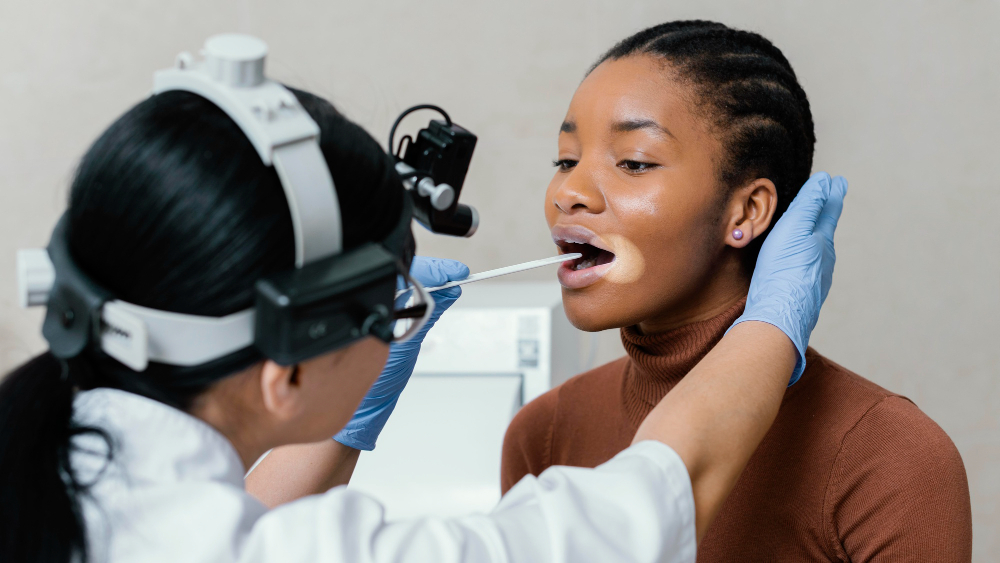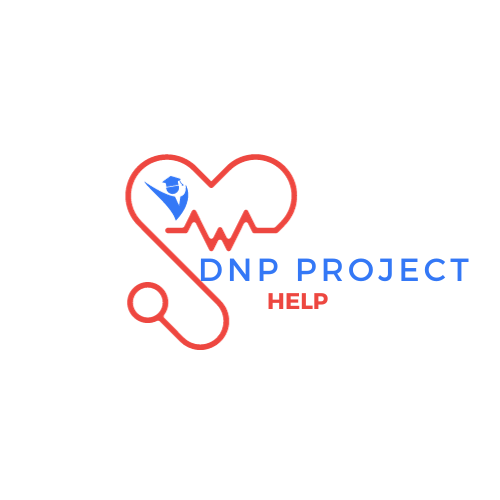
The Doctor of Nursing Practice (DNP) degree emphasizes the integration of theoretical and scientific knowledge into advanced nursing practice. One of the core courses in the DNP curriculum is DNP800: Theoretical and Scientific Underpinnings. This course serves as the foundation for understanding and applying nursing theories and scientific principles to enhance patient care and improve healthcare outcomes. In this article, we will explore the key components of DNP800, its importance in the DNP program, and how it equips nursing professionals with the necessary skills to excel in their field.
The Role of DNP800: Theoretical and Scientific Underpinnings
DNP800: Theoretical and Scientific Underpinnings is a cornerstone course in the Doctor of Nursing Practice (DNP) curriculum. This course is designed to equip advanced nursing students with a comprehensive understanding of the theoretical frameworks and scientific principles that inform and guide nursing practice, education, and research. The role of DNP800 is multifaceted, contributing to the development of nurse leaders who are proficient in integrating theory and evidence into clinical practice. This article explores the key roles and significance of DNP800 in the DNP program.
1. Building a Strong Theoretical Foundation
DNP800 plays a critical role in helping students understand the importance of nursing theories in shaping practice, research, and education. Key components include:
- Exploring Nursing Theories: Students delve into various nursing theories, such as grand theories, middle-range theories, and practice theories. This exploration helps them appreciate the diversity and depth of theoretical perspectives in nursing.
- Applying Theories to Practice: The course emphasizes the practical application of nursing theories to clinical scenarios. Students learn how to use theoretical frameworks to assess patient needs, design interventions, and evaluate outcomes.
- Enhancing Critical Thinking: By studying and analyzing different theories, students develop critical thinking skills that are essential for advanced practice. They learn to question assumptions, consider multiple perspectives, and make informed decisions.
2. Integrating Scientific Principles
The integration of scientific principles is a key focus of DNP800, ensuring that students are well-versed in the methodologies and evidence that underpin nursing practice. This includes:
- Understanding Research Methodologies: The course covers quantitative, qualitative, and mixed-methods research designs. Students learn how to select appropriate research methods, collect and analyze data, and interpret findings.
- Evidence-Based Practice (EBP): DNP800 emphasizes the importance of EBP, teaching students how to critically appraise research evidence and integrate it into clinical decision-making. This skill is vital for improving patient outcomes and ensuring high-quality care.
- Translational Science: The course introduces students to translational science, which involves turning research discoveries into practical applications. Students learn how to bridge the gap between research and practice, ensuring that scientific advancements benefit patients and healthcare systems.
3. Preparing for Leadership and Advocacy
DNP800 prepares students for leadership roles in nursing by providing a deep understanding of theoretical and scientific underpinnings. This preparation includes:
- Leadership Development: The course fosters leadership skills by teaching students how to apply theoretical and scientific knowledge to solve complex healthcare problems. They learn to lead evidence-based practice initiatives, quality improvement projects, and policy development.
- Advocacy: DNP800 equips students with the knowledge needed to advocate for changes in healthcare policies and practices. By understanding the theoretical and scientific basis for nursing interventions, they can effectively communicate the value of nursing contributions to policymakers and stakeholders.
- Interprofessional Collaboration: The course emphasizes the importance of working collaboratively with other healthcare professionals. Students learn how to integrate nursing theories and scientific evidence into interprofessional teams, enhancing patient care and outcomes.
4. Fostering Lifelong Learning
A key role of DNP800 is to instill a commitment to lifelong learning in students. This includes:
- Continuous Professional Development: The course encourages students to stay current with the latest research and advancements in nursing science. This commitment to ongoing learning is essential for maintaining competence and excellence in practice.
- Scholarship and Research: DNP800 inspires students to contribute to the nursing profession through scholarship and research. By understanding theoretical and scientific principles, they are prepared to conduct research, disseminate findings, and advance nursing knowledge.
- Reflective Practice: The course promotes reflective practice, encouraging students to continually evaluate their own practice and seek ways to improve. This reflective approach fosters personal and professional growth, ensuring that nurses provide the best possible care to their patients.
DNP800 Theoretical and Scientific Underpinnings Course Objective
DNP800 Theoretical and Scientific Underpinnings focuses on the integration of scientific and theoretical concepts essential for advanced nursing practice. Throughout this course, students will:
- Examine the Scientific Foundations for Nursing:
- Understand the core scientific disciplines that underpin nursing practice, including pathophysiological, psychosocial, and environmental sciences.
- Analyze how these scientific principles influence patient care, clinical decision-making, and health outcomes.
- Explore Patterns and Processes for Knowledge Development:
- Investigate the methodologies and processes involved in the generation and dissemination of nursing knowledge.
- Study various patterns of knowledge development, including empirical, aesthetic, ethical, and personal knowing, and their application in nursing practice.
- Utilize Theoretical Frameworks in Practice:
- Learn to apply nursing theories and models to real-world clinical scenarios.
- Critically evaluate different theoretical frameworks and their relevance to advanced nursing practice.
- Develop Skills in Literature Review:
- Conduct a comprehensive review of literature on a topic of personal and professional interest.
- Synthesize existing research and theoretical perspectives to create a coherent, evidence-based argument.
- Integrate Evidence-Based Practice:
- Apply principles of evidence-based practice to integrate research findings into clinical practice.
- Develop strategies for translating scientific evidence into practical interventions to improve patient care.
- Foster Critical Thinking and Reflective Practice:
- Enhance critical thinking skills by analyzing and synthesizing complex scientific and theoretical concepts.
- Engage in reflective practice to continuously improve clinical skills and professional growth.
What are the Scientific Underpinnings of Nursing Practice?
The scientific underpinnings of nursing practice form the foundation for evidence-based care and advanced clinical decision-making. These underpinnings encompass a broad range of scientific disciplines, methodologies, and principles that guide nurses in providing high-quality, effective, and safe patient care. Understanding these scientific underpinnings is essential for nurses, particularly those pursuing advanced degrees like the Doctor of Nursing Practice (DNP), as it equips them with the knowledge and skills needed to integrate research into practice and improve healthcare outcomes. In this article, we will explore the key components of the scientific underpinnings of nursing practice.
1. Research Methodology and Evidence-Based Practice
Research methodology is a critical component of the scientific foundation in nursing. It involves the systematic investigation of clinical questions and problems using rigorous scientific methods. Key elements include:
- Quantitative Research: This approach involves the collection and analysis of numerical data to identify patterns, relationships, and causal links between variables. Techniques such as randomized controlled trials (RCTs), cohort studies, and surveys are common in quantitative research.
- Qualitative Research: This approach focuses on understanding human experiences and behaviors through non-numerical data. Methods include interviews, focus groups, and content analysis, providing deeper insights into patient perspectives and healthcare processes.
- Mixed-Methods Research: Combining both quantitative and qualitative approaches, mixed-methods research offers a comprehensive understanding of complex healthcare issues by integrating numerical data with contextual insights.
Evidence-based practice (EBP) is the integration of the best available research evidence with clinical expertise and patient values. It involves:
- Critical Appraisal of Evidence: Evaluating the quality, validity, and applicability of research findings to determine their relevance to clinical practice.
- Implementation of Evidence: Applying research findings to clinical decision-making, policy development, and practice changes to improve patient outcomes.
- Evaluation of Outcomes: Assessing the impact of evidence-based interventions on patient care and health outcomes to ensure continuous improvement.
2. Biological and Physiological Sciences
Nursing practice is deeply rooted in the biological and physiological sciences, which provide an understanding of the human body’s structure, function, and mechanisms of disease. Key areas include:
- Anatomy and Physiology: Knowledge of the body’s systems, organs, and tissues is essential for understanding normal and pathological states, guiding clinical assessments, and interventions.
- Pathophysiology: Understanding the physiological changes associated with diseases and injuries helps nurses recognize signs and symptoms, make accurate diagnoses, and develop effective care plans.
- Pharmacology: Knowledge of pharmacokinetics and pharmacodynamics, drug interactions, and side effects is crucial for safe medication administration and patient education.
3. Behavioral and Social Sciences
The behavioral and social sciences provide insights into the psychological, social, and cultural factors that influence health and illness. Key disciplines include:
- Psychology: Understanding human behavior, mental health, and cognitive processes helps nurses address psychological aspects of patient care, such as stress, coping, and adherence to treatment.
- Sociology: Examining social structures, relationships, and cultural norms aids in understanding how social determinants of health impact patient outcomes and healthcare access.
- Anthropology: Exploring cultural beliefs, practices, and values supports the provision of culturally competent care and enhances patient-nurse relationships.
4. Health Systems and Policy
An understanding of health systems and policy is essential for nursing practice, particularly in leadership and advocacy roles. Key areas include:
- Health Policy: Knowledge of healthcare policies, regulations, and financing mechanisms enables nurses to advocate for policy changes that improve patient care and health equity.
- Health Economics: Understanding the economic factors that influence healthcare delivery and resource allocation helps nurses make cost-effective decisions and advocate for efficient use of resources.
- Healthcare Management: Skills in leadership, management, and organizational behavior are critical for effective healthcare delivery, quality improvement, and interprofessional collaboration.
FAQs for DNP800: Theoretical and Scientific Underpinnings
- What is the main focus of the DNP800 course?
The DNP800 course focuses on integrating scientific and theoretical concepts essential for advanced nursing practice. It covers the scientific foundations of nursing, including pathophysiological, psychosocial, and environmental sciences, and emphasizes the development and utilization of nursing knowledge.
2. How will this course help me in my nursing practice?
This course will enhance your understanding of the scientific and theoretical underpinnings of nursing, enabling you to apply evidence-based practices, critically evaluate research, and utilize theoretical frameworks to improve patient care and clinical decision-making.
3. What are the key components of the course curriculum?
Key components include examining the scientific foundations of nursing, exploring patterns and processes for knowledge development, applying theoretical frameworks in practice, conducting literature reviews, integrating evidence-based practice, and fostering critical thinking and reflective practice.
4. Will I need to complete any major projects or assignments?
Yes, one of the main assignments in this course involves developing a comprehensive literature review on a topic of personal interest, based on a theoretical framework. This project will help you synthesize existing research and theoretical perspectives to create an evidence-based argument.
5. How does DNP800 prepare me for leadership and advocacy roles in nursing?
DNP800 prepares you for leadership and advocacy roles by enhancing your ability to integrate scientific evidence and theoretical knowledge into practice, make informed clinical decisions, lead evidence-based practice initiatives, and advocate for policy changes that improve patient care and health equity.
6. What resources are available to help me succeed in this course?
Resources include access to academic journals and databases for research, guidance from faculty with expertise in theoretical and scientific nursing concepts, collaboration opportunities with peers, and support for developing critical thinking and reflective practice skills.
Must Read:


